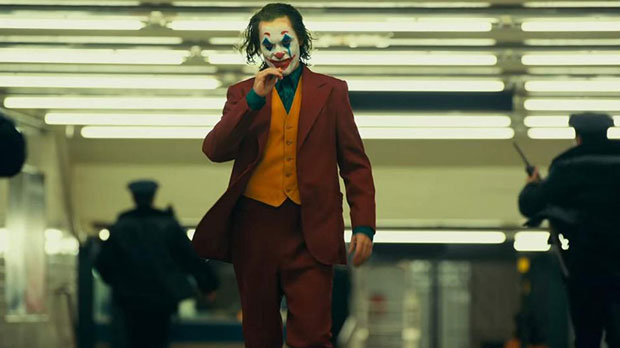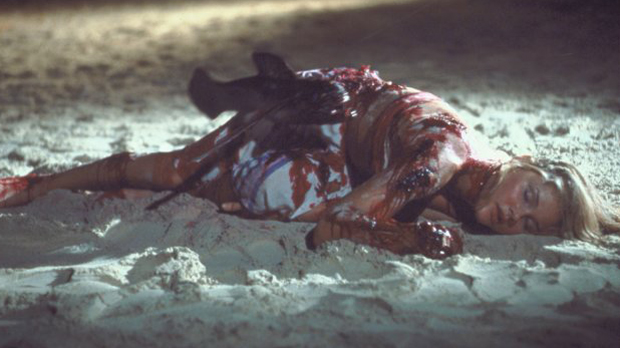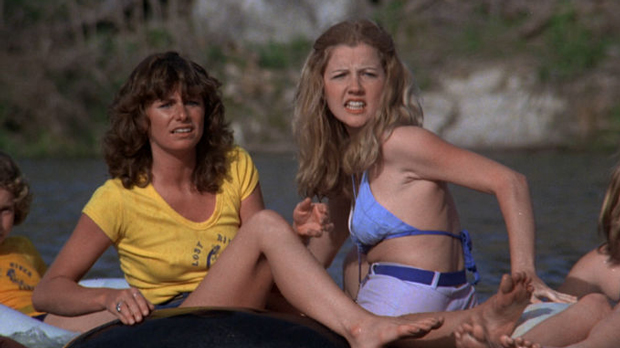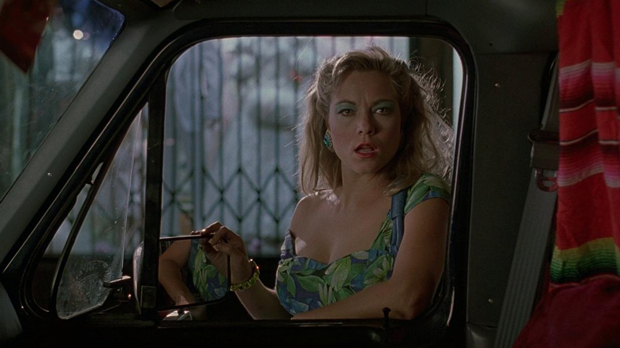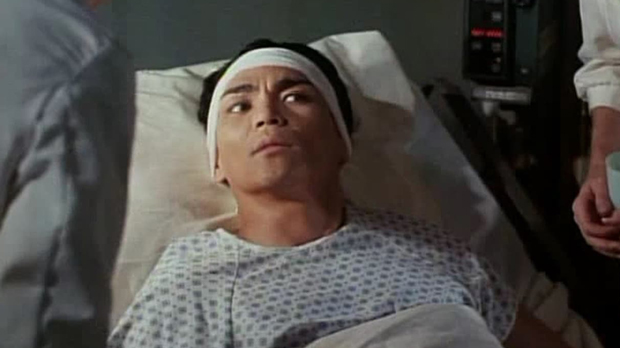 Joker (2019) Warner Bros./Drama-Thriller RT: 122 minutes Rated R (strong bloody violence, disturbing behavior, language, brief sexual images) Director: Todd Phillips Screenplay: Todd Phillips and Scott Silver Music: Hildur Guonadottir Cinematography: Lawrence Sher Release date: October 4, 2019 (US) Cast: Joaquin Phoenix, Robert De Niro, Zazie Beetz, Frances Conroy, Brett Cullen, Shea Whigham, Bill Camp, Glenn Fleshler, Leigh Gill, Josh Pais, Rocco Luna, Marc Maron, Sondra James, Murphy Guyer, Douglas Hodge, Dante Pereira-Olson, Carrie Louise Putrello, Sharon Washington, Brian Tyree Henry, April Grace. Box Office: $335.5M (US)/$1.079B (World)
Joker (2019) Warner Bros./Drama-Thriller RT: 122 minutes Rated R (strong bloody violence, disturbing behavior, language, brief sexual images) Director: Todd Phillips Screenplay: Todd Phillips and Scott Silver Music: Hildur Guonadottir Cinematography: Lawrence Sher Release date: October 4, 2019 (US) Cast: Joaquin Phoenix, Robert De Niro, Zazie Beetz, Frances Conroy, Brett Cullen, Shea Whigham, Bill Camp, Glenn Fleshler, Leigh Gill, Josh Pais, Rocco Luna, Marc Maron, Sondra James, Murphy Guyer, Douglas Hodge, Dante Pereira-Olson, Carrie Louise Putrello, Sharon Washington, Brian Tyree Henry, April Grace. Box Office: $335.5M (US)/$1.079B (World)
Rating: ****
In the highly unlikely case you’ve been hiding in a cave for the past year or so, let me make one thing abundantly clear about Joker. Although it’s an origin story of sorts about Batman’s biggest archenemy, it is NOT a comic book movie. There are no heroes in this story, only an antihero in the vein of Travis Bickle. It’s a dark portrait of a mentally ill person beaten down by life, beaten down by society and literally beaten down on a couple of occasions. When life finally pushes him over the edge, he pushes back with violence. This scenario brings to mind the likes of Taxi Driver and Falling Down only this guy wears clown makeup and laughs maniacally at inappropriate moments. Given the recent news stories about creepy clown sightings, Joker doesn’t seem too far removed from reality which makes it all the more disturbing.
In a performance that rivals the late Heath Ledger, Joaquin Phoenix (Walk the Line) plays the title role with a conviction that suggests the character stayed with him long after the movie wrapped. Prior to adopting his more familiar nom de plume, he’s Arthur Fleck, a clown-for-hire and struggling stand-up comedian with mental health issues- e.g. he’s delusional. He also has a neurological disorder that causes him to laugh uncontrollably at the wrong times. He cares for his frail, ailing mother (Conroy, Six Feet Under) in their crummy Gotham City apartment. She’s always waiting for a return letter from her former employer Thomas Wayne (Cullen, Ghost Rider) whom she’s written several times asking for help. At bedtime, they watch a late night show hosted by Murray Franklin (De Niro, Goodfellas) who later insults Arthur on the air after showing a clip from one of his stand-up gigs.
After being attacked by a gang of youths, a co-worker (Fleshler, Suburbicon) gives Arthur a gun to protect himself. It’s this same gun that later falls out of his pocket while performing for sick kids at a hospital and gets him fired. On his way home on the subway, Arthur has a confrontation with three financial types who work for Wayne Enterprises. He ends up killing all three, an act that sparks a citywide movement against the rich elite. Arthur’s downward spiral into complete insanity worsens when the city shuts down the social services program that provides his medication.
From here, I could discuss the political and social subtext except there’s nothing subtle about Joker. It’s as clear and upfront about its themes as it is its main character’s antisocial behavior. A billionaire magnate running for office, you can’t tell me you don’t see it. Gotham is a city filled with civil unrest that becomes worse when Joker emerges as a hero of the 99% fighting an ugly fight against the wealthy who don’t give a crap about the poor and their daily struggle for survival. Crowds of people in clown face gather in protest, holding up signs that read “F*** Wayne” and eventually rioting in the streets to be heard. What does this scenario remind you of? Like Taxi Driver, Joker comments on the general lack of civility in modern society and the resulting feelings of alienation. Everywhere he goes, all he sees are rude, indifferent people. Joker also touches on celebrity worship with Arthur’s fixation on Franklin as some sort of surrogate father figure. In one scene, he images being invited to join Franklin on the stage while sitting in the studio audience. Casting De Niro in this role is a stroke of genius on the director’s part; I’ll come back to this in a minute.
Todd Phillips, a director primarily known for Old School and The Hangover trilogy, owes a great debt to Martin Scorsese whose influences are all over Joker, Taxi Driver and The King of Comedy in particular. The guy who gives Arthur the gun bears a very close resemblance to Peter Boyle who served the same function in Taxi Driver. De Niro’s role here in a switch-up from his role in The King of Comedy in which he plays a wannabe comedian obsessed with an arrogant late night show host played by Jerry Lewis. How brilliant! In addition, the subway scene recalls the original Death Wish; specifically, the part where Charles Bronson deals with a couple of muggers on the subway. Phillips is obviously going for a vintage look and feel starting with the old Warner logo and a Gotham that looks exactly like New York City circa 1981. The streets are filthy and dangerous and lined with porno theaters. There’s a garbage strike which explains all the trash. As much as I love Anton Furst’s German Expressionist Gotham in the first Batman movie in ’89, there’s a lot to be said for the extreme realism of production designer Mark Friedberg’s version here.
Don’t ask me if Phoenix is a better Joker than Ledger; it’s too hard a call to make. What I will say is that Phoenix is positively chilling. There’s no two ways about it, this Joker is a total psycho. He flails and dances and sings (Frank Sinatra’s “That’s Life” mainly) and laughs like a lunatic. There’s a lot of wacky malicious glee in his take on The Joker. The difference between him and other Jokers is depth of character. Co-writer Phillips and Scott Silver add context to his psychosis. We learn why he’s so screwed up; it’s due in large part to a mentally ill mom and abuse he suffered in the past. That, of course, is on top of the crap the world dishes out on a daily basis. De Niro, of course, is great. Just listen to his increasingly hostile on-air exchange with Phoenix in the final act. Zazie Beetz of Deadpool 2 plays Sophie, a neighbor with whom Arthur starts a relationship. Given his state of mind, it might not be what he thinks it is. She’s quite good in her few scenes.
I’ve given it a lot of thought and have decided NOT to address concerns that Joker might incite people to commit violence. First, this is a review not an editorial. Second, for a person to do that, he or she already has problems; don’t blame the movie. In the end, Joker is only a movie and a seriously dark one at that. I was completely lost in Phillips’ bleak vision. Plus, I’ve always wanted to see an R-rated take on this character. I’m definitely not disappointed, not in the slightest. This movie is GREAT! It’s one of the year’s best.
